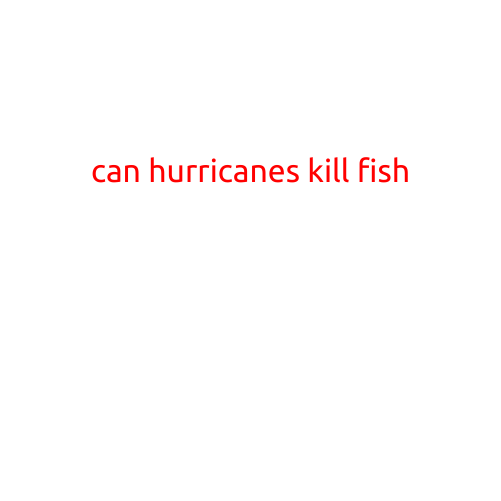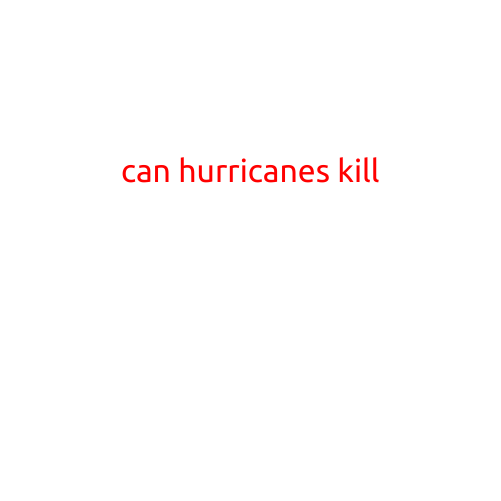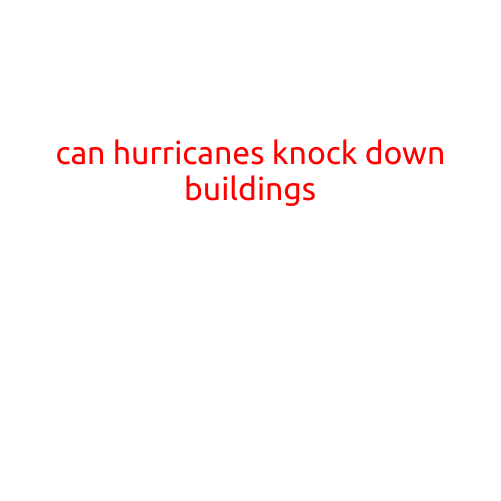
Can a Hurricane Kill You? Understanding the Risks and Prevention Strategies
Hurricanes are powerful tropical cyclones that bring strong winds, heavy rainfall, and flooding to coastal areas. While they can cause significant damage to properties and infrastructure, they also pose a threat to human life. As hurricane season approaches, it’s essential to understand the risks associated with these storms and take necessary precautions to ensure your safety.
Why Are Hurricanes Deadly?
Hurricanes are responsible for thousands of deaths each year, primarily due to:
- Flooding: Hurricanes bring massive amounts of water, which can lead to flooding, landslides, and drowning.
- Strong Winds: Winds can reach speeds of over 150 mph, causing destruction to buildings and infrastructure, and throwing people into potential hazards like power lines, debris, and fallen trees.
- Storm Surge: A rise in sea level due to the storm, which can inundate coastal areas, contaminating water sources, and causing buildings to collapse.
- Electrocution: Downed power lines, flooded electrical systems, and lightning strikes can electrocute people.
- Heat Stroke: Without access to shelter, food, and water, people can succumb to heat stroke and dehydration.
Who Are Most Vulnerable?
The following groups are more susceptible to the risks associated with hurricanes:
- The Elderly: Older adults may have pre-existing medical conditions, making them more vulnerable to heat-related illnesses and flooding-related hazards.
- Young Children: Kids under the age of 5 are more susceptible to dehydration, heat stroke, and drowning.
- People with Disabilities: Those with mobility or cognitive impairments may struggle to evacuate or navigate hazardous environments.
- Pregnant Women: Women in their last trimester may be more vulnerable to heat-related illnesses and complications.
Prevention Strategies
While hurricanes are unpredictable, preparing in advance can significantly reduce the severity of their impact. Here are some essential prevention strategies:
- Stay Informed: Monitor local weather forecasts and warnings, and sign up for emergency alerts to stay informed about the storm’s progress.
- Create an Evacuation Plan: Identify safe evacuation routes, emergency shelters, and alternative housing options.
- Stock an Emergency Kit: Prepare a kit with essentials like food, water, flashlights, batteries, and medications.
- Secure Your Home: Board up windows, secure outdoor furniture and decorations, and trim trees to minimize damage.
- Charge Your Devices: Charge your phone, laptop, and other essential devices in case the power goes out.
- Stay Indoors: Avoid traveling and stay indoors during the storm to minimize the risk of injury or death.
- Follow Evacuation Orders: If ordered to evacuate, do so promptly to ensure your safety.
Conclusion
Hurricanes are formidable natural disasters that require immediate attention and preparation. By understanding the risks associated with these storms and taking necessary precautions, you can significantly reduce your chances of injury or death. Stay informed, prepare in advance, and take the necessary steps to ensure your safety during hurricane season.





